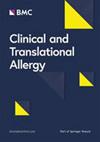Although patients with chronic rhinosinusitis with nasal polyps (CRSwNP) may benefit from endoscopic sinus surgery (ESS), some patients will experience polyp recurrence, adding to the overall disease burden of CRSwNP. We aimed to investigate predictors of revision ESS in patients with CRSwNP.
A nationwide population-based study including all adults diagnosed with CRSwNP who had surgical procedure codes for ESS (N = 3506), followed up between January 2012 and December 2019. Logistic regression models provided adjusted odds ratios (OR) with 95% confidence intervals (CIs) for the odds of revision surgery within one and 3 years post-index surgery.
559 (15.9%) of the patients had at least one revision surgery during the follow-up. Median time to revision of ESS was 425 days (interquartile range: 213–898). Baseline asthma (OR = 1.58, 95% CI 1.17–2.12) and antibiotic use (OR = 1.61, 95% CI 1.27–2.04) were associated with higher odds of revision ESS, particularly within 3 years post-index surgery, whereas Increasing age was inversely associated with the odds of ESS revision (OR = 0.82, 95% CI 0.76–0.88). The highest odds of revision ESS were observed within 3 years post-index surgery in patients who had undergone extensive surgery at index (OR = 14.13, 95% CI 3.41–95.64) compared with those who had undergone limited surgery. OCS use was frequent among CRSwNP patients, with a higher cumulative dose in patients undergoing multiple ESS revisions (63%, n = 97, median daily dose 3.29 mg, IQR: 1.64–3.70) compared with patients without revisions (49%, n = 1361 and 1.64 mg, IQR: 1.64–3.29, respectively. p-value <0.001).
A small proportion of CRSwNP patients require revision ESS with associated high cumulative OCS doses, highlighting the need for additional therapies to achieve disease control and reduce the corticosteroid burden. A few simple baseline characteristics can predict the need for recurrent surgery among the patients with CRSwNP.


